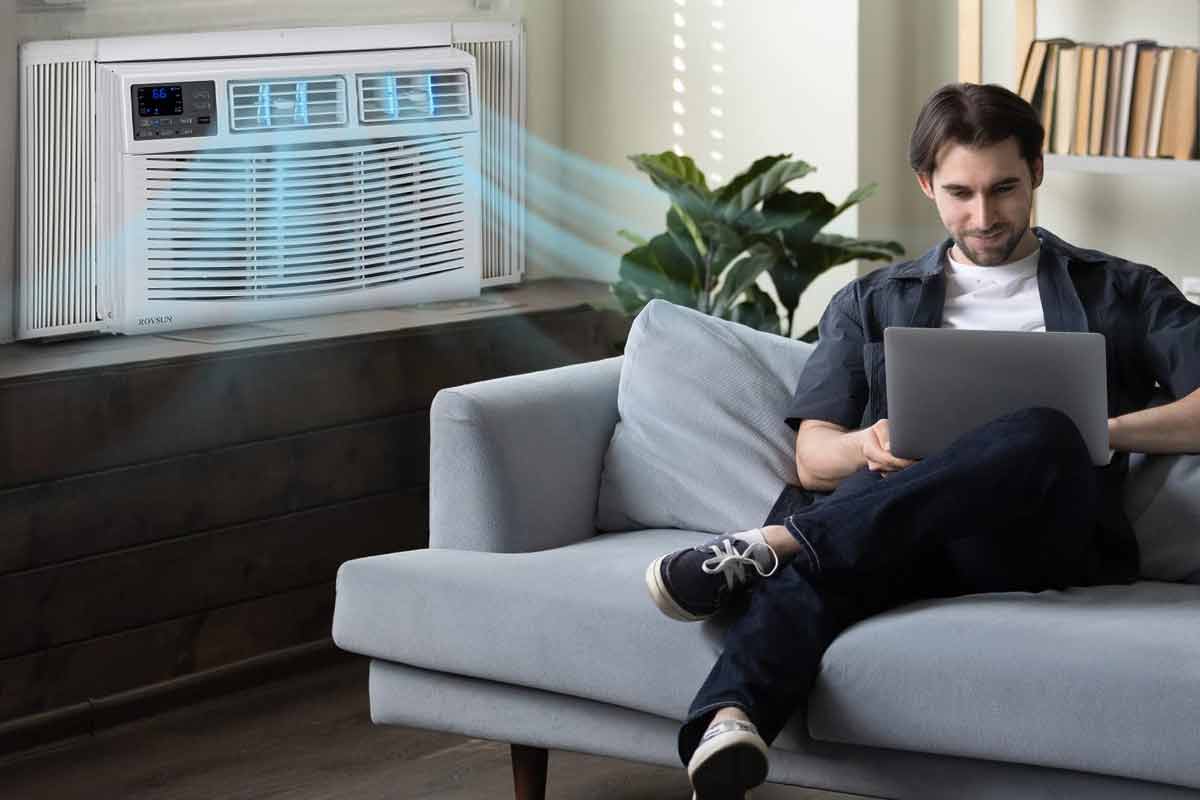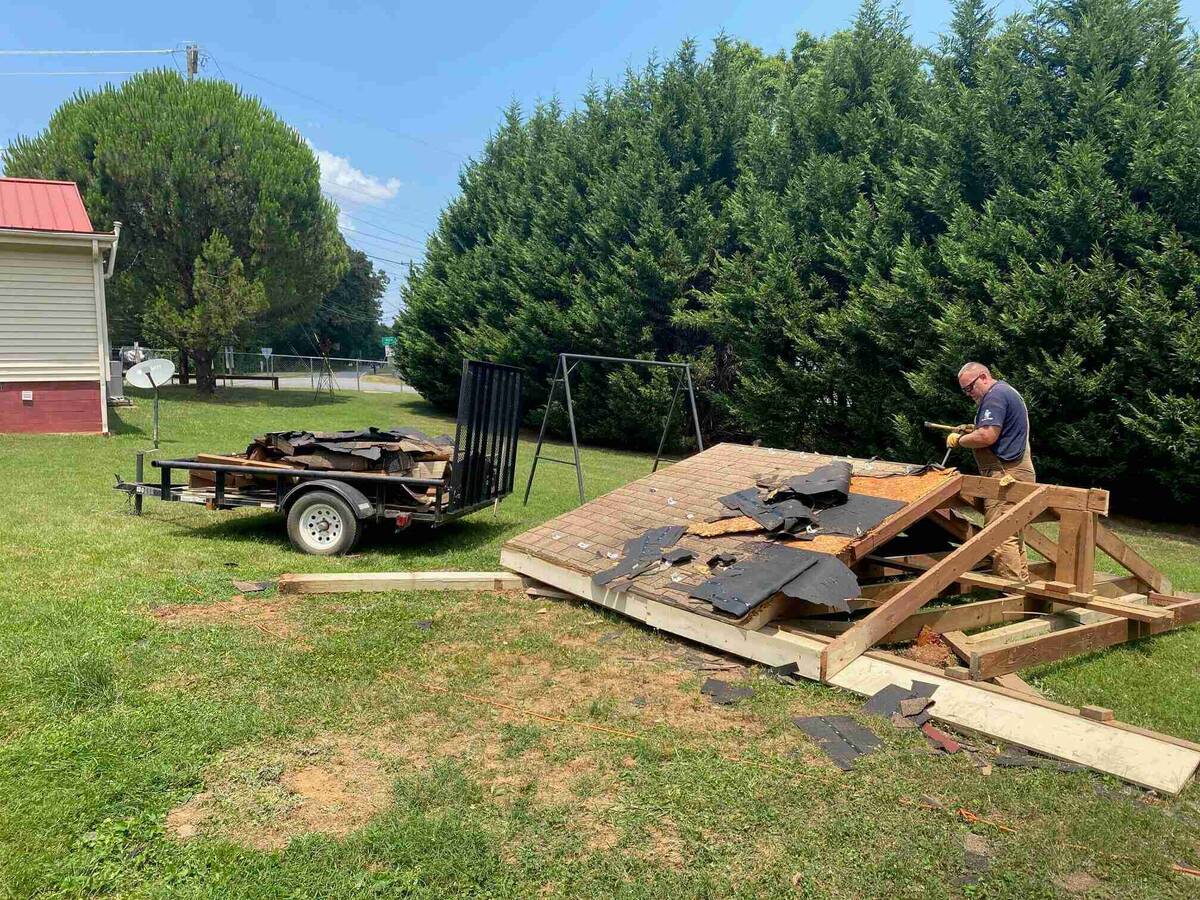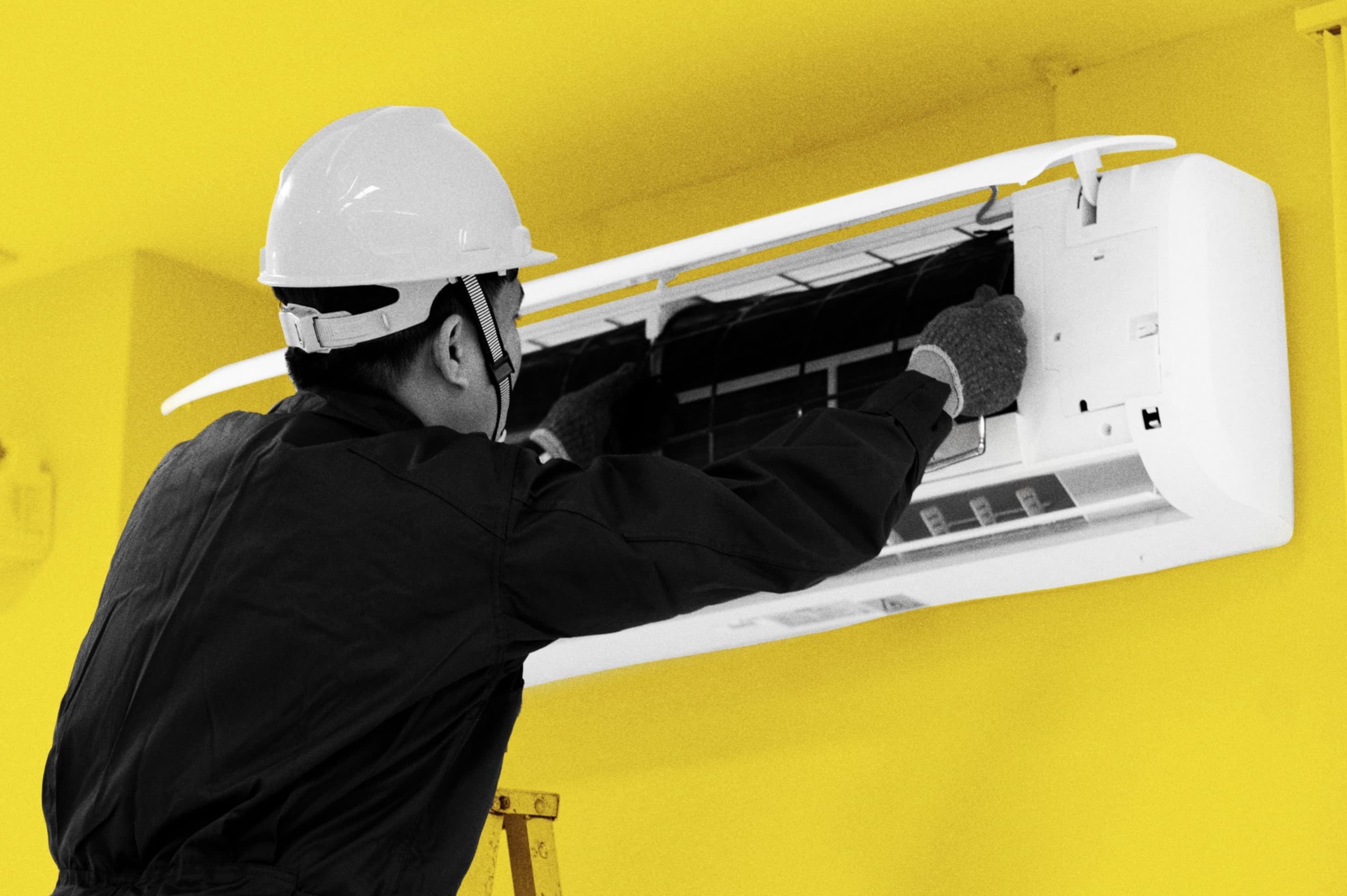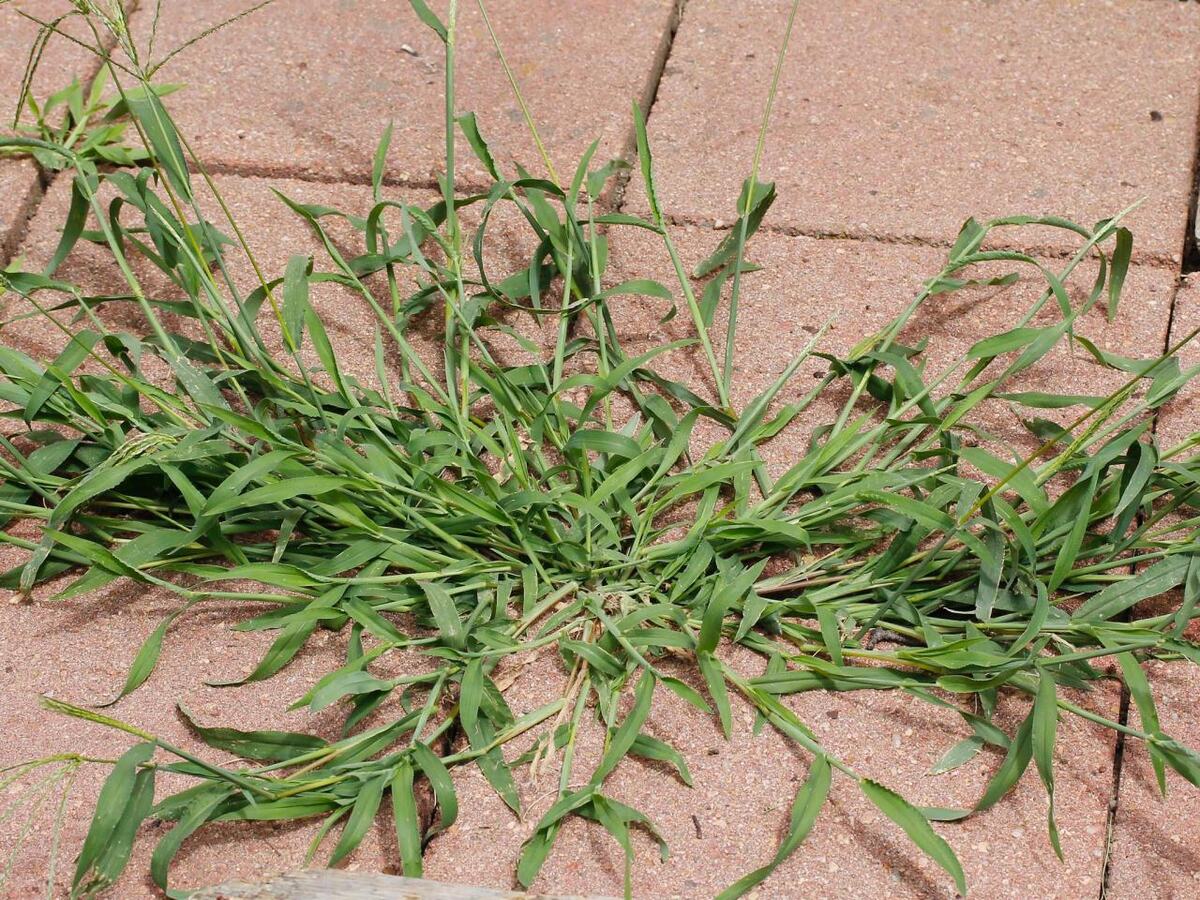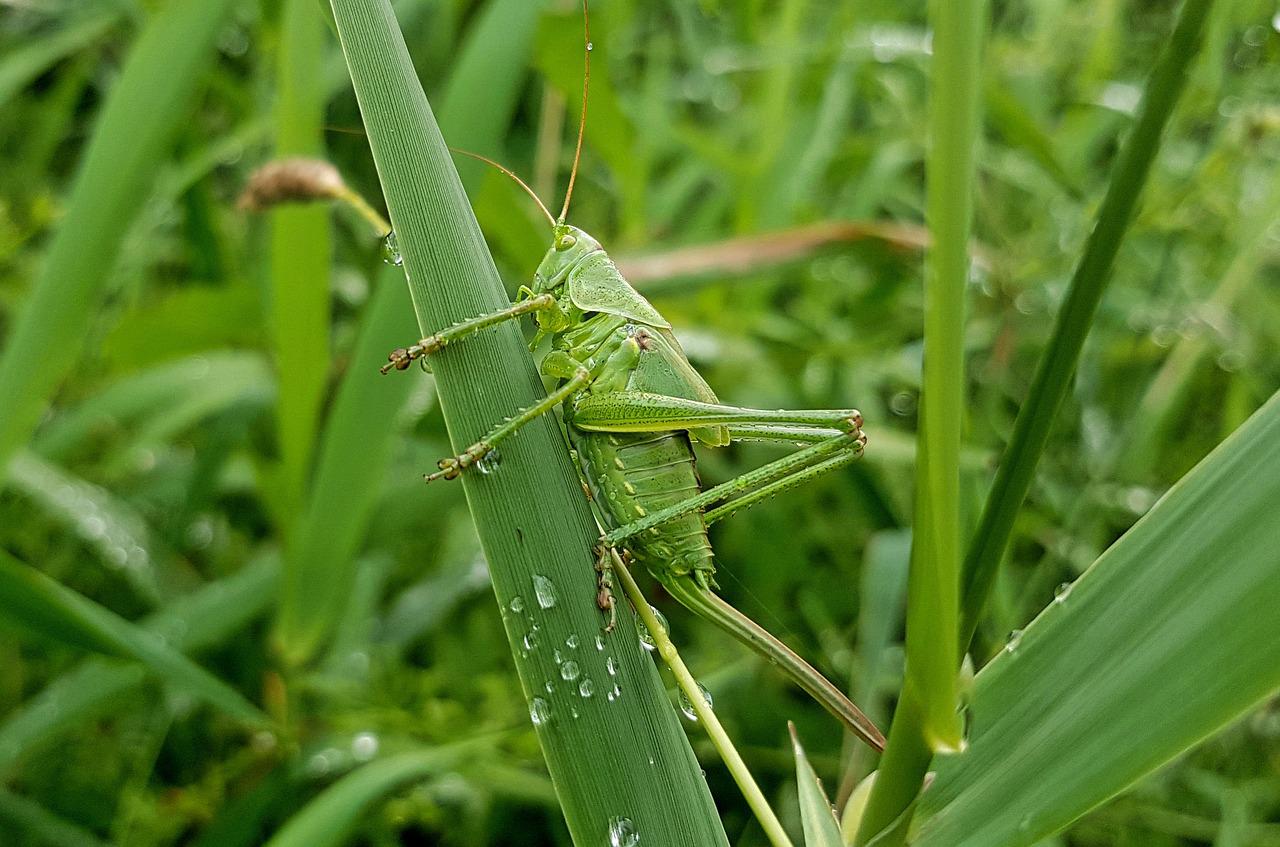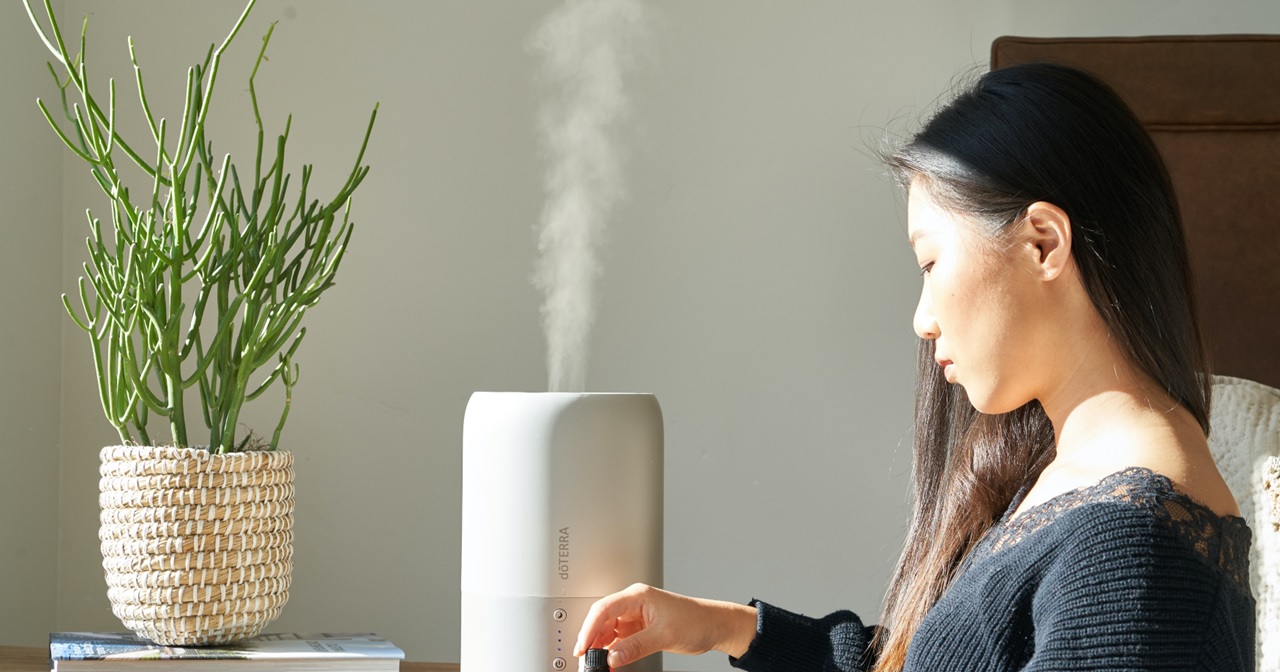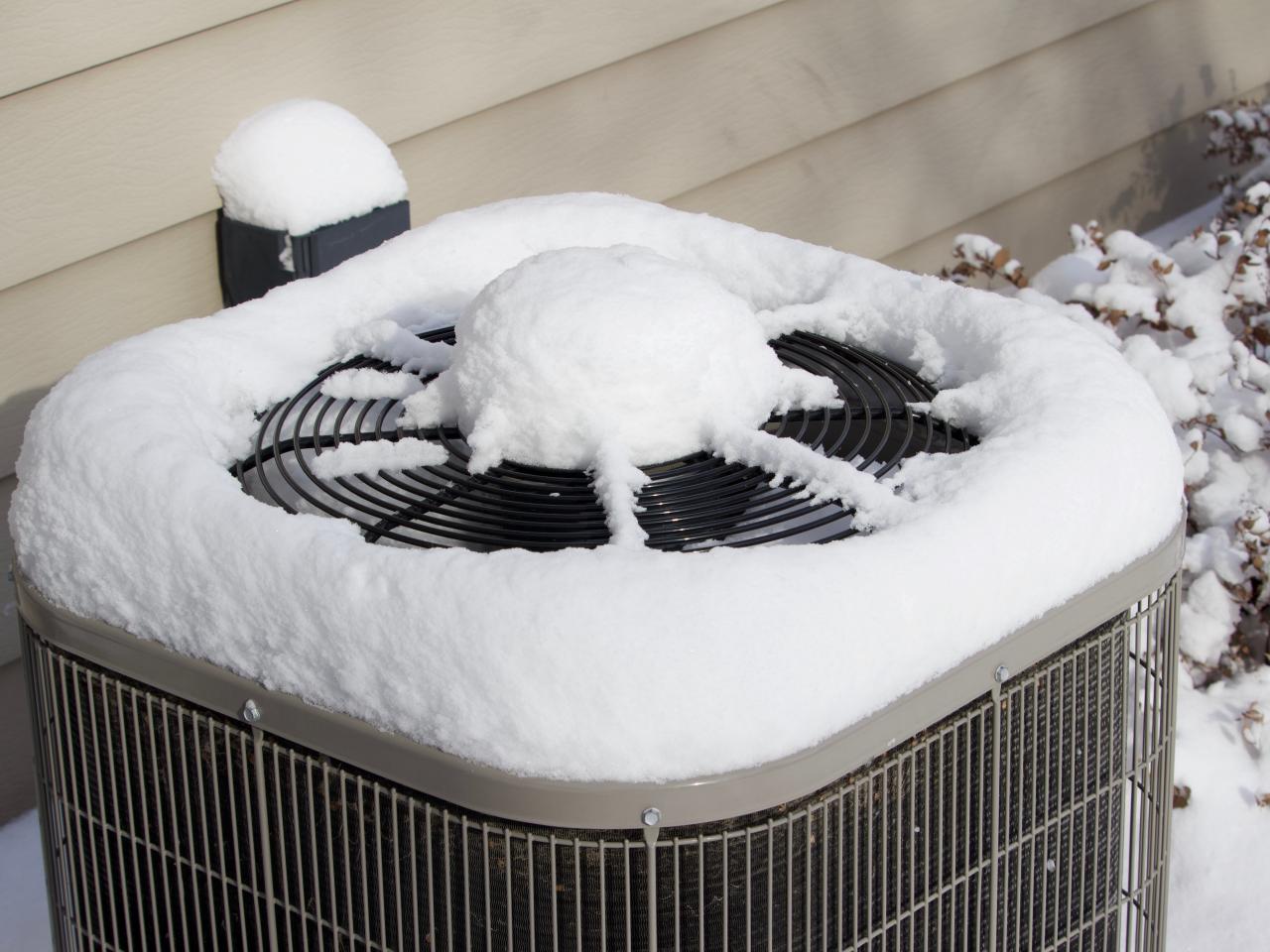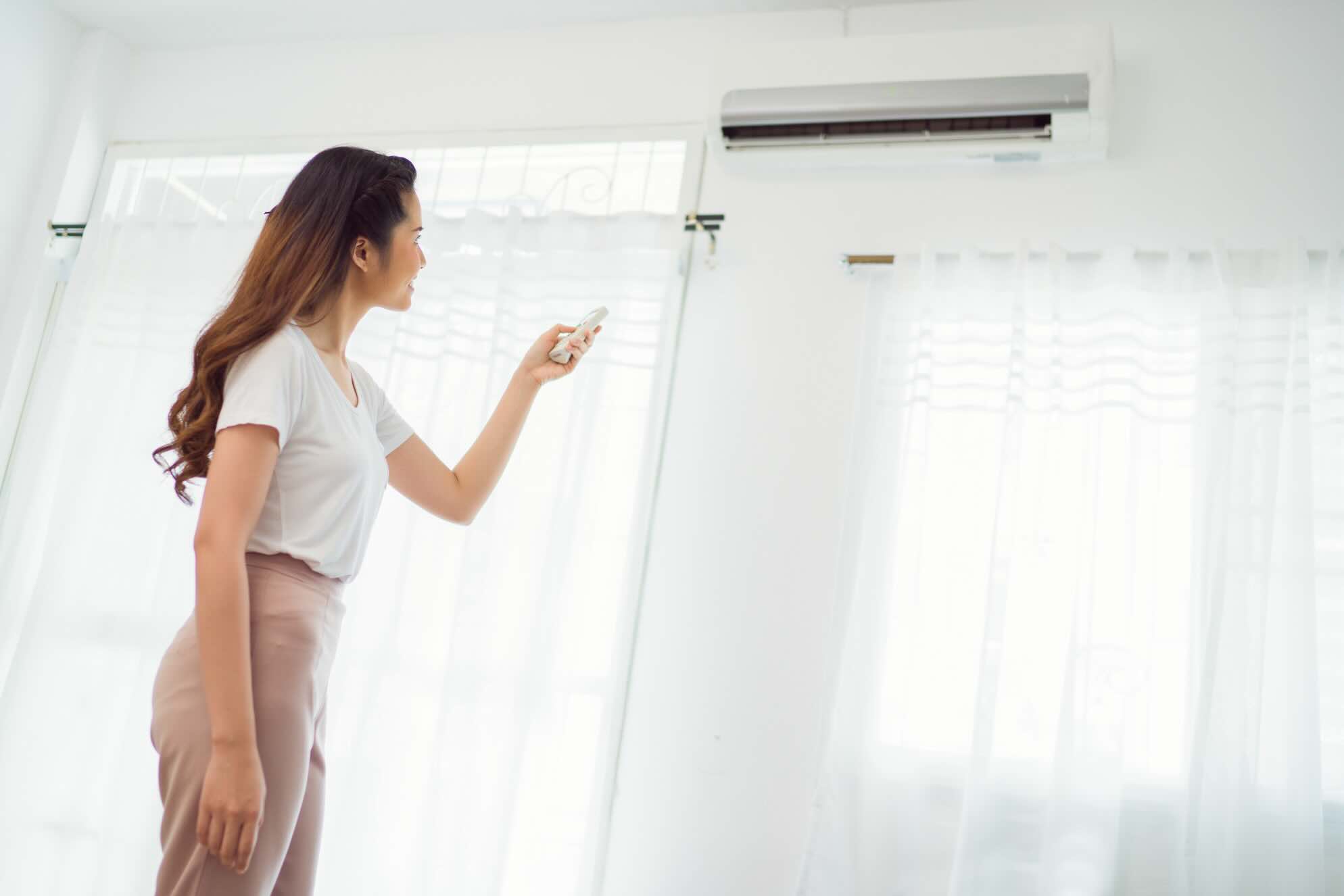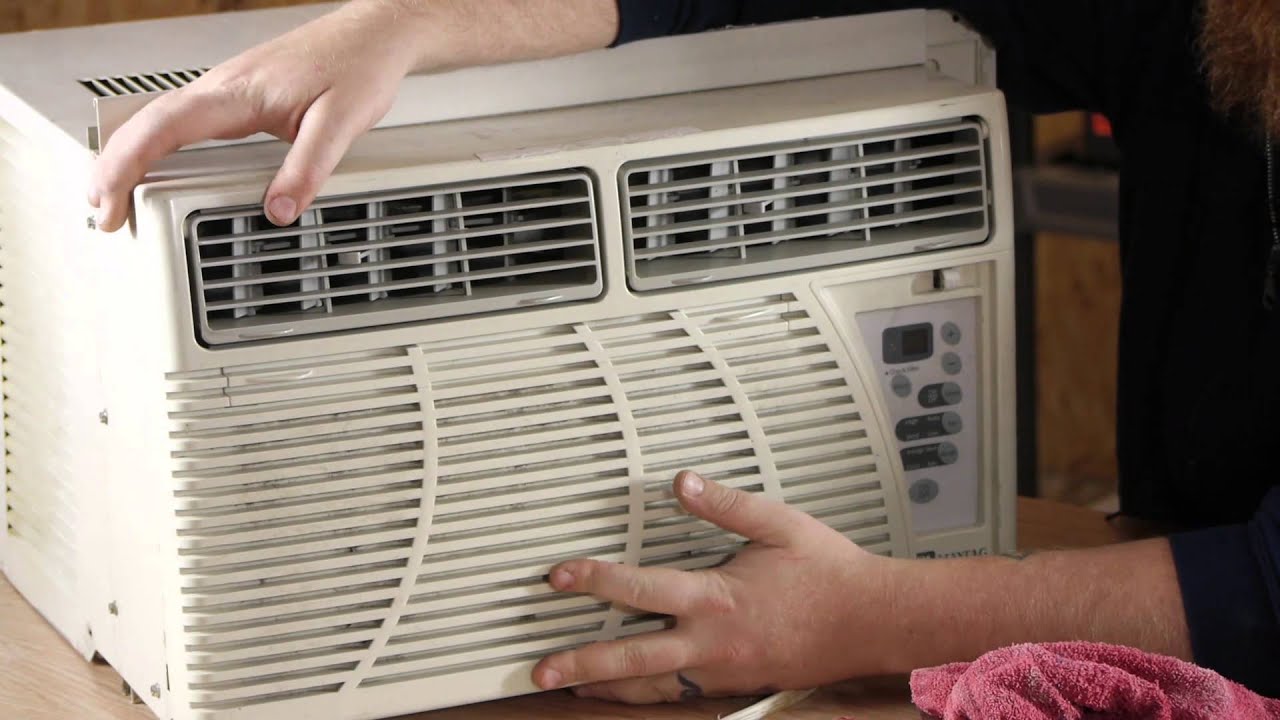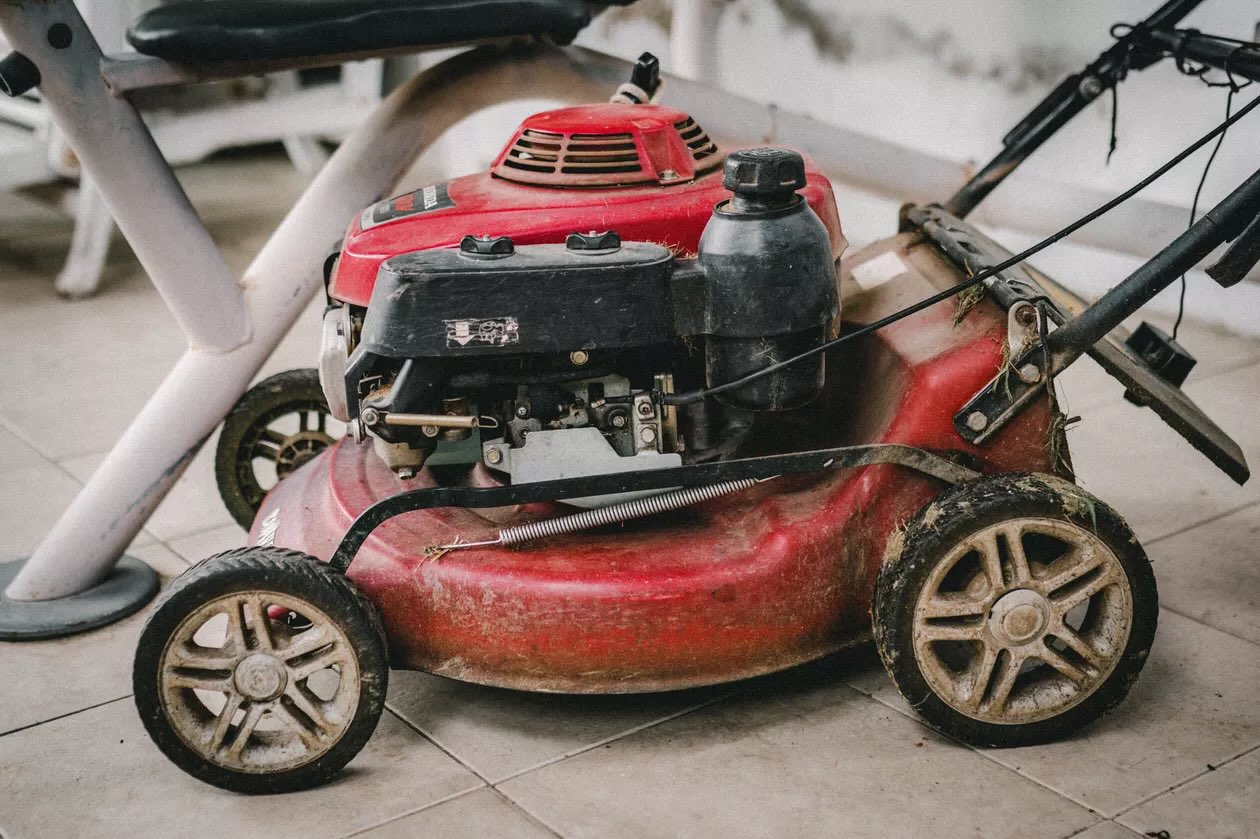Home>Home Maintenance>How To Get Rid Of An Air Conditioner Cough


Home Maintenance
How To Get Rid Of An Air Conditioner Cough
Modified: March 7, 2024
Learn effective home maintenance techniques to prevent and eliminate air conditioner cough. Protect your health and improve indoor air quality with our expert tips.
(Many of the links in this article redirect to a specific reviewed product. Your purchase of these products through affiliate links helps to generate commission for Storables.com, at no extra cost. Learn more)
Introduction
Welcome to our comprehensive guide on how to get rid of an air conditioner cough. As the summer heat intensifies, many of us rely on air conditioning systems to keep our homes cool and comfortable. However, sometimes these systems can have a side effect known as the “air conditioner cough.” This irritating condition can leave you with a persistent cough and discomfort, making it difficult to enjoy the benefits of air conditioning.
In this article, we will explore the symptoms, causes, and prevention tips for air conditioner cough. We will also provide you with some effective home remedies to alleviate the symptoms. It is essential to understand that while these remedies may provide relief, if your symptoms persist or worsen, it is crucial to seek medical advice from a healthcare professional.
Now, let’s take a closer look at what air conditioner cough is and how it can affect your health.
Key Takeaways:
- Don’t let the air conditioner cough ruin your summer! Keep your indoor air clean and moist to prevent discomfort and coughing.
- If you’re coughing from the air conditioner, try staying hydrated, using a humidifier, and practicing good hygiene to soothe your throat.
Understanding the Air Conditioner Cough
The air conditioner cough, also known as “air conditioning-induced respiratory irritation,” is a condition that occurs when prolonged exposure to air conditioning systems leads to respiratory discomfort and coughing. This condition is not uncommon and can affect individuals of all ages.
When an air conditioner is running, it cools the air by removing excess moisture. This process can cause the air to become dry and dehumidified, resulting in a lack of moisture in the environment. Dry air can irritate the respiratory system, leading to symptoms such as coughing, throat irritation, and dryness.
Additionally, air conditioning systems can circulate dust, pollen, and other airborne particles that can also trigger respiratory irritation and coughing in sensitive individuals. Poorly maintained air conditioning systems can also harbor mold, bacteria, and fungi, which can worsen the symptoms of the air conditioner cough.
It is important to note that the air conditioner cough is not a clinical term recognized by medical professionals. However, it is a commonly used term to describe the discomfort and symptoms experienced by individuals when exposed to air conditioning for prolonged periods.
In the next section, we will discuss the symptoms associated with the air conditioner cough.
Symptoms of Air Conditioner Cough
The symptoms of air conditioner cough can vary from person to person, depending on their sensitivity to dry air and airborne particles. Here are some common symptoms experienced by individuals with air conditioner cough:
- Coughing: Persistent, dry coughing is one of the primary symptoms of air conditioner cough. The cough may be mild or severe and can be accompanied by throat irritation.
- Throat irritation: Dry air from the air conditioner can cause dryness and irritation in the throat, leading to discomfort and a scratchy sensation.
- Dryness: Extended exposure to dry air can cause excessive dryness in the nasal passages, mouth, and skin, leaving individuals feeling parched and dehydrated.
- Sneezing and congestion: Airborne particles like dust and pollen circulated by the air conditioning system can trigger sneezing and nasal congestion in sensitive individuals.
- Worsened asthma or allergies: Individuals with pre-existing asthma or allergies may experience exacerbation of their symptoms when exposed to air conditioning. This can include increased wheezing, shortness of breath, and allergic reactions.
- Headache: Some individuals may experience headaches as a result of the dry air and respiratory irritation caused by the air conditioner.
- Fatigue and discomfort: Prolonged exposure to an uncomfortable environment can lead to fatigue, restlessness, and general discomfort.
It is important to note that these symptoms can vary for each individual, and some people may be more sensitive to the effects of air conditioning than others.
In the next section, we will explore the potential causes of air conditioner cough.
Causes of Air Conditioner Cough
The air conditioner cough can have various causes, ranging from dry air to airborne contaminants. Understanding these causes can help in implementing effective prevention and treatment strategies. Here are the common causes of air conditioner cough:
- Dry air: The primary cause of air conditioner cough is the lack of moisture in the air. Air conditioning systems cool the air by removing excess moisture, resulting in low humidity levels. This dry air can irritate the respiratory system, leading to coughing and throat irritation.
- Airborne particles: Air conditioning systems can circulate dust, pollen, pet dander, and other airborne particles. These particles can trigger respiratory allergies and irritate the airways, causing coughing and other respiratory symptoms.
- Poor air quality: If the air conditioning system is not properly maintained, it can contribute to poor indoor air quality. Dust, mold, bacteria, and other contaminants can accumulate in the system and be circulated into the air, leading to respiratory irritation and coughing.
- Pre-existing respiratory conditions: Individuals with pre-existing conditions such as asthma, allergies, or chronic bronchitis may be more susceptible to air conditioning-induced cough. These conditions can make the airways more sensitive and prone to irritation.
- Improper ventilation: Inadequate ventilation in indoor spaces can exacerbate the effects of air conditioning. Without proper air circulation, the dry and stagnant air from the air conditioner can accumulate, leading to respiratory discomfort.
It is important to note that the severity of the air conditioner cough can vary depending on factors such as individual sensitivity, duration of exposure, and the cleanliness and maintenance of the air conditioning system.
In the next section, we will provide some useful tips to prevent or minimize the occurrence of air conditioner cough.
To get rid of an air conditioner cough, make sure to clean or replace the air filters regularly to remove dust and allergens. Also, consider using a humidifier to add moisture to the air and soothe your throat.
Prevention Tips for Air Conditioner Cough
While the air conditioner cough can be bothersome, there are several steps you can take to prevent or minimize its occurrence. By implementing these prevention tips, you can create a healthier and more comfortable indoor environment. Here are some effective prevention tips for air conditioner cough:
- Maintain optimal humidity levels: To combat dry air, consider using a humidifier alongside your air conditioner. A humidifier adds moisture to the air, preventing excessive dryness and reducing the risk of respiratory irritation.
- Clean and replace air filters: Regularly clean or replace the air filters in your air conditioning system. This helps to remove dust, pollen, and other particles that can trigger allergies and respiratory symptoms. Follow the manufacturer’s instructions for proper filter maintenance.
- Keep the air conditioner clean: Ensure that the air conditioner unit is clean and free of dust, mold, and other contaminants. Regularly clean the vents, coils, and other components of the system to maintain good indoor air quality.
- Improve indoor air quality: Use air purifiers or indoor plants to help improve the overall indoor air quality. Air purifiers can remove airborne particles, while certain plants can naturally purify the air.
- Allow for proper ventilation: Open windows and doors whenever possible to allow fresh air to circulate. Proper ventilation reduces the concentration of indoor pollutants and helps maintain a healthier indoor environment.
- Stay hydrated: Drink plenty of water to keep yourself hydrated, especially in dry environments. Hydration helps to moisten the airways and reduce throat dryness caused by the air conditioner.
- Consider using a fan: Use a fan in combination with your air conditioner to improve air circulation. This can help reduce the concentration of airborne particles and promote better ventilation.
Implementing these prevention tips can significantly reduce the risk of air conditioner cough and create a more comfortable atmosphere in your home or office.
In the next section, we will discuss some home remedies that can help alleviate the symptoms of air conditioner cough.
Home Remedies for Air Conditioner Cough
If you’re experiencing symptoms of air conditioner cough, there are several home remedies you can try to alleviate the discomfort and soothe your respiratory system. These remedies can help provide relief and reduce the intensity of the cough. Here are some effective home remedies for air conditioner cough:
- Stay hydrated: Drink plenty of fluids, such as water, herbal tea, and warm soups, to keep yourself hydrated. Hydration helps to moisturize your throat and airways, reducing irritation and coughing.
- Use a humidifier: Consider using a humidifier in the room where the air conditioning is most frequent. A humidifier adds moisture to the air, relieving dryness and reducing the risk of coughing and throat irritation.
- Steam inhalation: Inhaling steam can help loosen mucus and soothe the respiratory system. Boil water in a pot, place a towel over your head to create a tent, and inhale the steam for a few minutes.
- Gargle with saltwater: Mix half a teaspoon of salt in a glass of warm water and gargle with it. This can help alleviate throat irritation and reduce coughing.
- Drink herbal teas: Herbal teas such as chamomile, ginger, and licorice root tea have soothing properties that can help relieve cough and throat irritation.
- Use a saline nasal spray: Dry air can cause nasal congestion and discomfort. Saline nasal sprays can moisturize the nasal passages, relieving congestion and reducing coughing.
- Avoid irritants: Minimize exposure to irritants such as smoke, strong perfumes, and cleaning chemicals, as they can further aggravate respiratory symptoms.
- Practice good hygiene: Wash your hands regularly to reduce the risk of respiratory infections. Avoid touching your face, especially your mouth and nose, to prevent the spread of germs.
- Consume immune-boosting foods: Incorporate immune-boosting foods into your diet, such as fruits, vegetables, nuts, and seeds, to support your respiratory health.
- Get plenty of rest: Ensure you get enough rest to allow your body to heal and recover. Adequate rest helps boost the immune system and promotes overall respiratory health.
While these home remedies may provide relief from air conditioner cough, it is important to consult a healthcare professional if your symptoms persist or worsen.
In the next section, we will discuss when it is advisable to seek medical advice.
When to Seek Medical Advice
While most cases of air conditioner cough can be managed with home remedies and lifestyle changes, there are certain situations where it is advisable to seek medical advice. Consulting a healthcare professional can help determine the underlying cause of your symptoms and provide appropriate treatment. Here are instances when you should consider seeking medical advice:
- Severe or persistent symptoms: If your cough is severe, persistent, or worsening despite trying home remedies, it is important to consult a healthcare professional. They can evaluate your condition and recommend appropriate treatment.
- Difficulty breathing: If you experience difficulty breathing, shortness of breath, or chest pain, it is crucial to seek immediate medical attention. These symptoms may indicate a more serious respiratory issue that requires prompt medical intervention.
- High fever: If you develop a high fever along with your cough, it could be a sign of a respiratory infection. It is important to consult a healthcare professional, as you may require medication such as antibiotics to treat the infection.
- Worsening asthma or allergies: If you have pre-existing asthma or allergies and notice that your symptoms are worsening or not improving with home remedies, it is advisable to seek medical advice. Your healthcare provider may need to adjust your treatment plan or prescribe additional medications.
- Chronic or recurring cough: If you have a chronic or recurring cough that lasts for several weeks or months, it is important to have it evaluated by a healthcare professional. They can identify any underlying conditions contributing to your cough and recommend appropriate management strategies.
- Other concerning symptoms: If you experience any other concerning symptoms alongside your cough, such as blood in your cough, unexplained weight loss, or persistent fatigue, it is essential to seek medical advice for a proper evaluation.
Remember that everyone’s health and condition are unique, so it is always best to consult a healthcare professional to receive personalized advice and appropriate treatment for your air conditioner cough.
Finally, let’s conclude our comprehensive guide on how to get rid of an air conditioner cough.
Conclusion
Air conditioner cough can be an irritating side effect that occurs due to prolonged exposure to dry air and airborne particles from air conditioning systems. However, by understanding the symptoms, causes, and prevention tips, you can effectively manage and alleviate the discomfort associated with this condition.
In this article, we discussed the symptoms of air conditioner cough, which can include persistent coughing, throat irritation, and dryness. We also explored the causes, including dry air, airborne particles, poor air quality, pre-existing respiratory conditions, and improper ventilation.
To prevent air conditioner cough, we provided several useful tips, such as maintaining optimal humidity levels, cleaning and replacing air filters, improving indoor air quality, and ensuring proper ventilation. Additionally, we suggested home remedies like staying hydrated, using humidifiers, practicing steam inhalation, and consuming herbal teas to alleviate symptoms.
While home remedies can provide relief, it’s important to consult a healthcare professional if your symptoms persist, worsen, or if you experience severe difficulty breathing or high fevers. They can provide proper diagnosis and treatment if necessary.
By implementing the prevention tips and home remedies mentioned in this article, you can create a healthier and more comfortable indoor environment, minimizing the chances of experiencing air conditioner cough or reducing its severity.
Remember, every individual’s sensitivity and response to air conditioning can vary, so it’s essential to listen to your body and take appropriate measures to ensure your respiratory health. Stay mindful of the air quality in your environment and maintain a balance between cool comfort and a healthy living space.
We hope this comprehensive guide has been helpful in understanding and managing air conditioner cough. Stay cool, stay comfortable, and breathe easy!
Frequently Asked Questions about How To Get Rid Of An Air Conditioner Cough
Was this page helpful?
At Storables.com, we guarantee accurate and reliable information. Our content, validated by Expert Board Contributors, is crafted following stringent Editorial Policies. We're committed to providing you with well-researched, expert-backed insights for all your informational needs.
